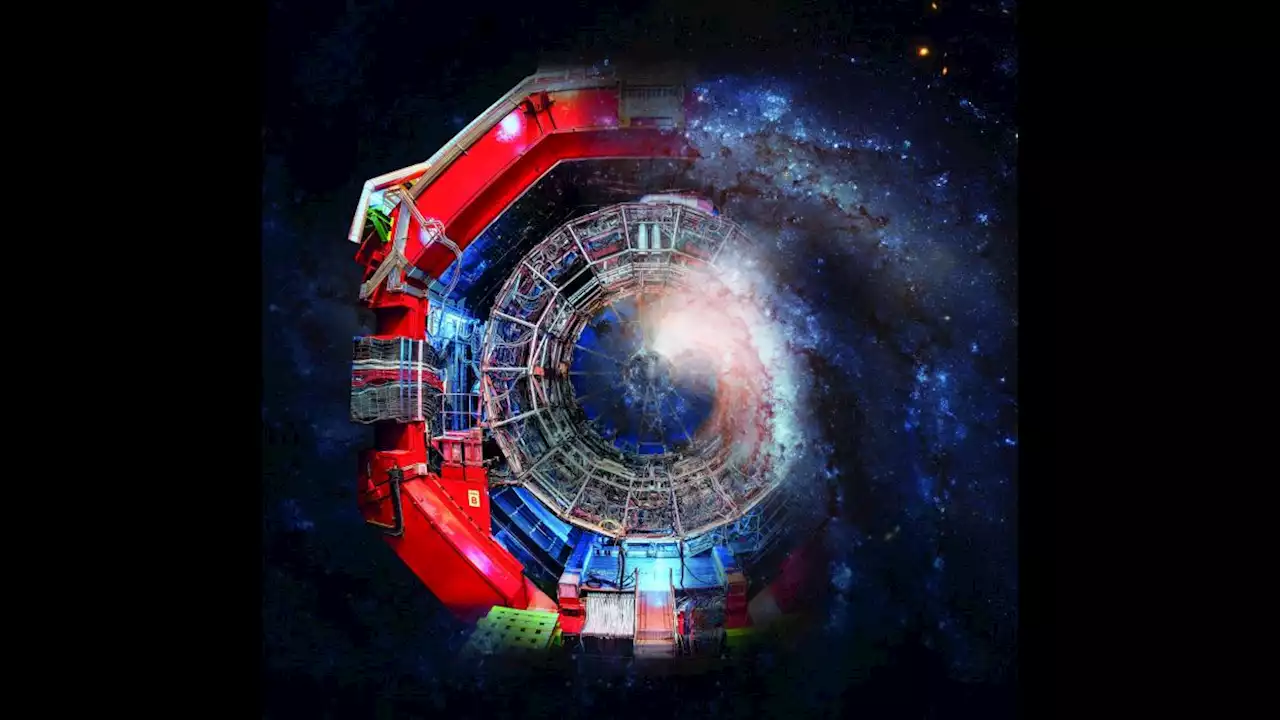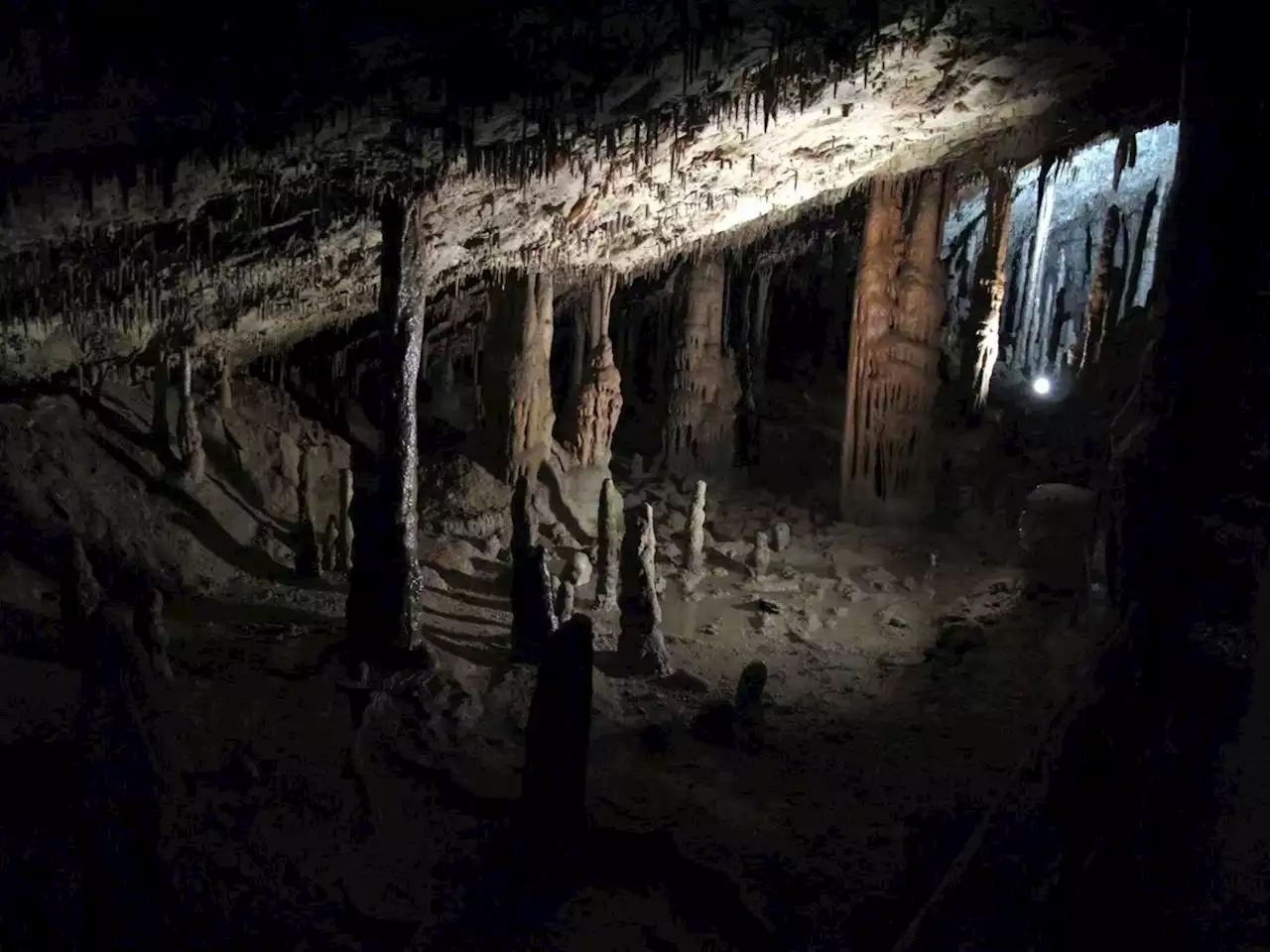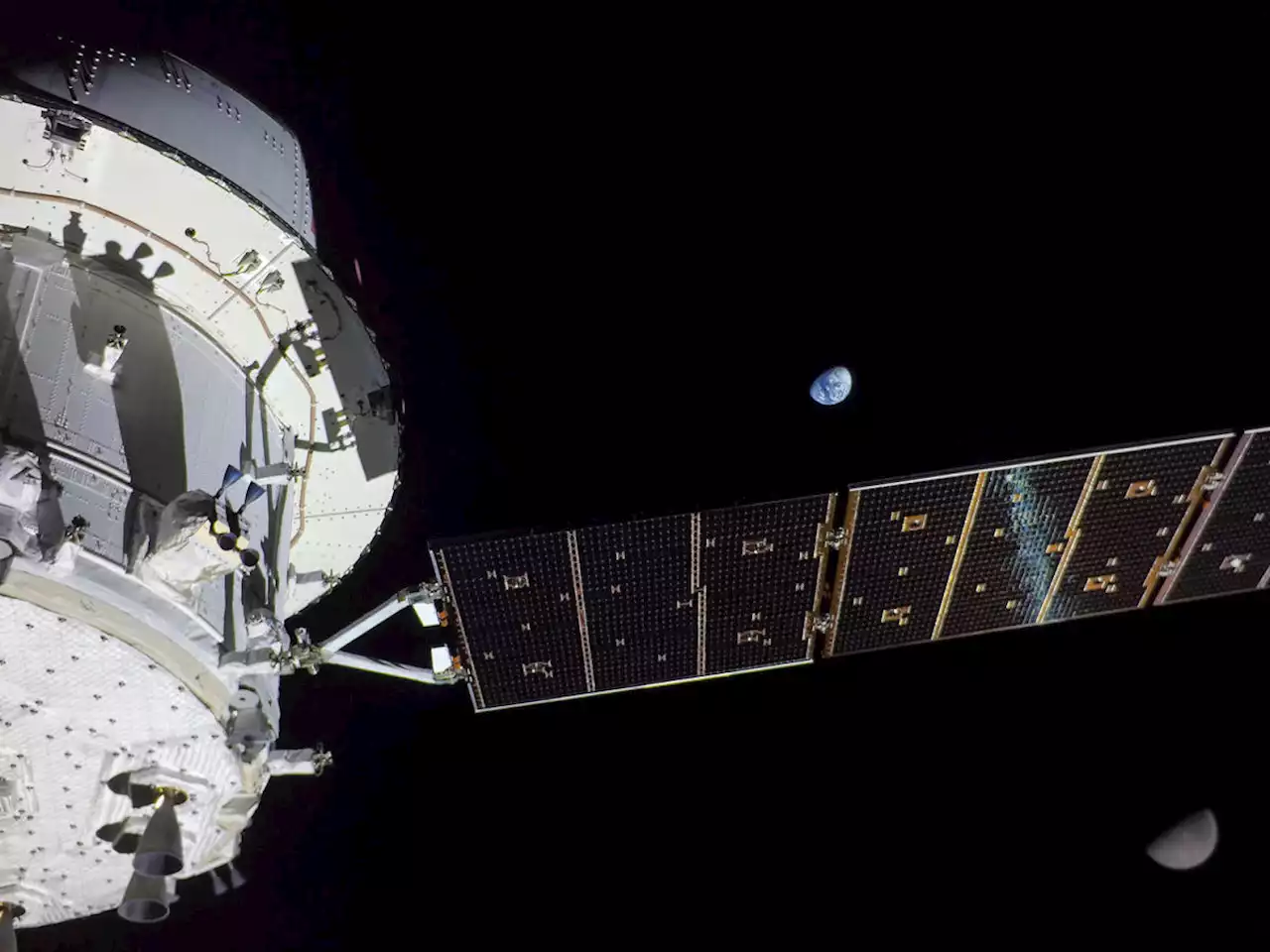Experiments at CERN's particle collider suggest that antihelium particles created by dark matter in distant space could make it to Earth
wanted to see whether antinuclei created in space could make it to detectors in Earth’s neighbourhood intact.First, they measured how many antihelium nuclei get destroyed when they hit regular matter inside a particle collider. Using the ALICE detector at the CERN particle physics laboratory in Switzerland, they analysed collisions of very high-energy protons and charged atoms, which produced both helium nuclei and antihelium nuclei.
Königstorfer says they used this “disappearance probability” in a computer simulation of antimatter’s journey towards Earth from distant space, such as the centre of our galaxy. Simulations of antinuclei being created by dark matter showed that about half of such particles would be detectable near Earth unscathed, even after traversing thousands of trillions of kilometres.
This shows that any low-energy antihelium nuclei we detect on Earth will likely have come from dark matter, says“This experiment says that if any astrophysical object for any reason produces antihelium, we can detect it near Earth with standard detectors.
at the University of California, Santa Cruz. He says that understanding this better could help researchers fine-tune theories of dark matter.
United States Latest News, United States Headlines
Similar News:You can also read news stories similar to this one that we have collected from other news sources.
 The Large Hadron Collider reveals how far antimatter can travel through the Milky WayRobert Lea is a science journalist in the U.K. whose articles have been published in Physics World, New Scientist, Astronomy Magazine, All About Space, Newsweek and ZME Science. He also writes about science communication for Elsevier and the European Journal of Physics. Rob holds a bachelor of science degree in physics and astronomy from the U.K.’s Open University. Follow him on Twitter sciencef1rst.
The Large Hadron Collider reveals how far antimatter can travel through the Milky WayRobert Lea is a science journalist in the U.K. whose articles have been published in Physics World, New Scientist, Astronomy Magazine, All About Space, Newsweek and ZME Science. He also writes about science communication for Elsevier and the European Journal of Physics. Rob holds a bachelor of science degree in physics and astronomy from the U.K.’s Open University. Follow him on Twitter sciencef1rst.
Read more »
 We Could Simulate Living in Lunar Lava Tubes in Caves on EarthSimulation is key to space exploration. Scientists and engineers test as many scenarios as possible before subjecting their projects to the harshness of space. It should not be any different with the future living quarters of explorers on the Moon. One of the most commonly cited locations for a future permanent lunar base is in … Continue reading 'We Could Simulate Living in Lunar Lava Tubes in Caves on Earth'
We Could Simulate Living in Lunar Lava Tubes in Caves on EarthSimulation is key to space exploration. Scientists and engineers test as many scenarios as possible before subjecting their projects to the harshness of space. It should not be any different with the future living quarters of explorers on the Moon. One of the most commonly cited locations for a future permanent lunar base is in … Continue reading 'We Could Simulate Living in Lunar Lava Tubes in Caves on Earth'
Read more »
 Orion prepares to return to Earth ahead of splashdown | Digital TrendsNASA's Orion spacecraft is on its way home from its orbit of the moon and is due to splash down in the Pacific Ocean tomorrow, Sunday, December 11.
Orion prepares to return to Earth ahead of splashdown | Digital TrendsNASA's Orion spacecraft is on its way home from its orbit of the moon and is due to splash down in the Pacific Ocean tomorrow, Sunday, December 11.
Read more »
 Artemis 1 spacecraft closes in on Earth for Sunday splashdownClosing out a 25-day voyage around the moon, NASA's Artemis 1 spacecraft closed in on Earth, on track for a 25,000-mph re-entry that will subject the unpiloted capsule to a hellish 5,000-degree inferno before splashdown off Baja California.
Artemis 1 spacecraft closes in on Earth for Sunday splashdownClosing out a 25-day voyage around the moon, NASA's Artemis 1 spacecraft closed in on Earth, on track for a 25,000-mph re-entry that will subject the unpiloted capsule to a hellish 5,000-degree inferno before splashdown off Baja California.
Read more »
 This Alloy Is The Toughest Known Material on Earth, And It Gets Tougher in The ColdAn alloy of chromium, cobalt, and nickel has just given us the highest fracture toughness ever measured in a material on Earth.
This Alloy Is The Toughest Known Material on Earth, And It Gets Tougher in The ColdAn alloy of chromium, cobalt, and nickel has just given us the highest fracture toughness ever measured in a material on Earth.
Read more »
 Watch NASA's Artemis 1 Orion spacecraft return to Earth on SundayOrion is scheduled to splash down off the coast of Baja California around 12:40 p.m. EST on Sunday (Dec. 11).
Watch NASA's Artemis 1 Orion spacecraft return to Earth on SundayOrion is scheduled to splash down off the coast of Baja California around 12:40 p.m. EST on Sunday (Dec. 11).
Read more »
